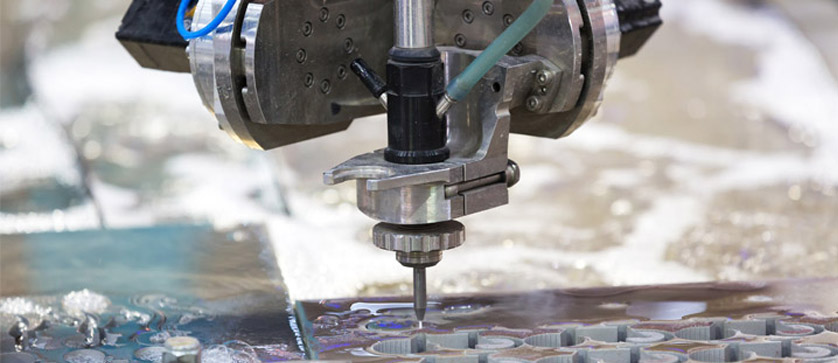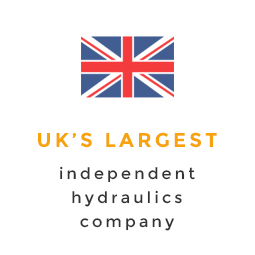Aerospace: Precision Matters
Precision matters in the aerospace industry - a sector where there's no margin for error when it comes to producing aircraft, engines and related parts. Complex technology is required to produce items to the highest standards, including military solutions such as guided missiles and scientific products like space vehicles.
This is why the aerospace sector uses waterjet cutting to manufacture a diverse range of components, such as customised control panels, turbine blades and jet engines - nothing can compare with the versatility and accuracy of waterjet cutting.

© sorapolujjin / Adobe Stock
Why is precision so important?
Waterjet cutting has been used since the 1970s in aerospace, an industry where the required products are widespread and diverse, covering the commercial aircraft industry and defence solutions. Every component, no matter how small, must be machined carefully to ensure it's of the highest quality and to the exact dimensions.
Any error, no matter how small, could lead to an aircraft having a structural weakness, which could cause a disaster, and that’s why the machining of parts for the aerospace sector is more complex than any other industry, with a specific range of high-strength materials being used.
The tolerance levels are much stricter, so the industry requires manufacturing processes that can satisfy the sophisticated production levels, meeting the high standards and rigorous manufacturing demands required by law. When the waterjet was first designed, it blew away the competition and proved itself indispensable.
The history of the waterjet
As long ago as the 1970s, waterjets were already being used by aerospace companies for the manufacture of interior aircraft components, including the seats comprising soft plastics, foam and fabric, plus the carpeting.
As aerospace technology advanced, and thus more precise solutions were needed in the manufacture of materials such as titanium, steel and composites, abrasive waterjet cutting provided the most reliable answers.
Aerospace giant Boeing was among the first to adopt abrasive waterjet cutting to process a variety of materials, quickly finding that the method offered reliability, precision and strength. It was a clear leader in fabricating and cutting components that other manufacturing methods were unable to handle.
In the aerospace industry today, waterjet technology is used by just about every company across the globe to produce the perfect machinery and components. It would be difficult to find an aircraft that didn't have parts created by waterjet cutting.
What can waterjets offer?
One of the major benefits of waterjets is their flexibility. The abrasive waterjet can be adjusted to manufacture any specific part, while it can also be standardised to produce precise parts on a large-scale production basis.
Adaptable across many different material types, they can cut through a large range of materials precisely and safely, even materials that may be damaged by other fabricating processes such as glass, foam, carbon fibre, rubber, titanium, brass, alloys, plastic, copper, stainless steel and aluminium.
Waterjets can cut through so many different materials because their cool-cutting process leaves no zones heat-affected. Lasers will struggle to cut materials with a high thermal conductivity, such as aluminium or steel. Waterjet machines will eradicate any zones that could be affected by heat and cause structural weaknesses or microscopic cracks.
Production is more standardised with waterjets, which can be used in combination with control and automation technologies. Computer systems ensure the parts are properly and precisely constructed.
Producing a clean, smooth cut, waterjet cutting is perfect for the aerospace sector, manufacturing reliable parts that aren't at risk from structural issues. Environmentally friendly, the process reduces hazardous gases and dust, and it's able to save on raw materials. Waterjet cutting is also faster than most other cutting methods, not least because it's capable of cutting in various directions.
So, why do aerospace companies rely so heavily on this production method? Well, I think the answer to that is quite obvious really!
For further information about Phoenix Hydraulics' specialist waterjet cutting service, contact us on 01733 234800, or complete our handy online contact form and we'll get straight back to you.


